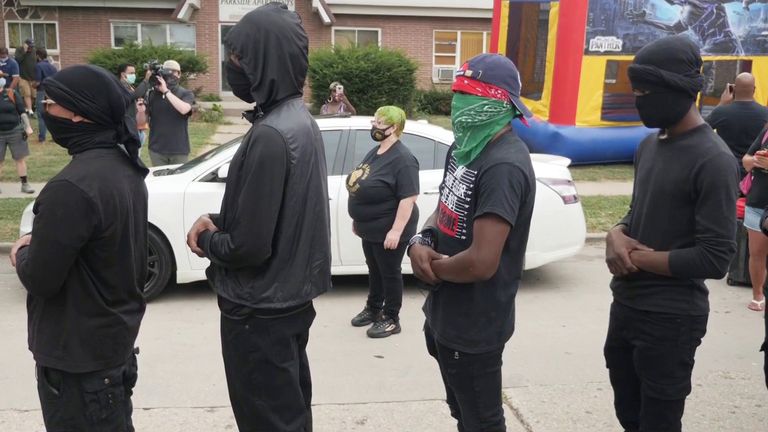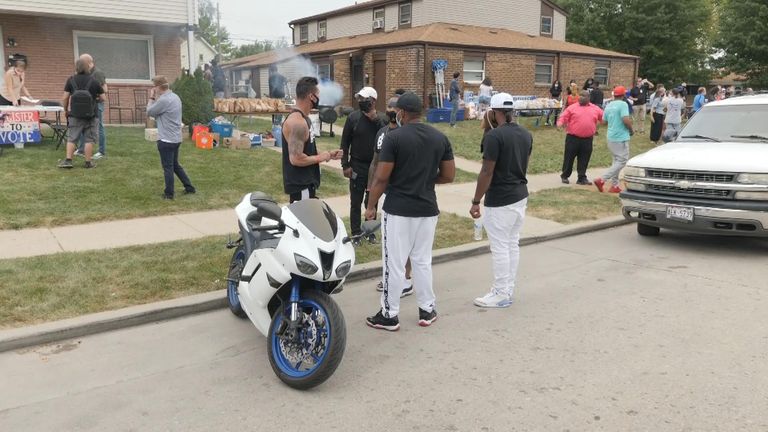When I asked Jacob Blake’s mother about Donald Trump last week, a woman by her side answered: “Donald Trump can kiss my a**.”
Julia Jackson, Jacob’s mother, waved a disapproving finger and said: “Scratch that.”
It was two days after her son had been shot by police. The world had watched the mobile phone footage and screamed its verdict on the incident and circumstances around shooting a man seven times in the back.
When many waded into the politics of blame, Julia Jackson stepped back.
Rather, during an emotional news conference, she used the platform to call for an end to violent protest and a healing for the country.
Ms Jackson said she was praying for police officers and their families.
It was the noble and dignified contribution from a mother who brought a stand-out serenity to the fall-out from her son’s shooting.
She left it to others to debate the rights and wrongs of Donald Trump’s visit to Kenosha. Family members viewed it as an exercise in electioneering that used their suffering as a political backdrop.
A few blocks from where the president toured damaged buildings, Jacob’s uncle Justin Blake told me: “Don’t take focus away from the real story. The real story is a cop went out of his position and shot our nephew seven times and we want justice.”
:: Listen to the Daily podcast on Apple Podcasts, Google Podcasts, Spotify, Spreaker
He spoke in the street where Jacob was shot. Neighbours had organised a street party to showcase a positive community and detract from the president’s trip into their town.
Kenosha has been peaceful for nearly a week. Last Tuesday night was the last night of serious violence, when two people were shot and killed as armed vigilantes took to the streets.
It was, perhaps, the moment when the dangers of armed militia patrolling the streets crystallised the risks in the minds of everyone, on both sides.
Peace in Kenosha fed into the irritation of the local mayor and state governor who asked Donald Trump to stay away.
They view his visit as a campaigning president wading into a public order situation that was already resolving itself, with the inherent risk that he could re-ignite it.
Kenosha’s civic centre square, which had witnessed some of its worst rioting a week ago, is still busy with the sight and sound of anger and protest.
Groups do still gather and, on the Tuesday the president came to the city, there were heated arguments among a small crowd – albeit more Jerry Springer than American revolution.
Among the President’s supporters engaging heartily was Terry Schimke.
He offered the Trump view: “I think it’s a real good idea he came here.
“The local government didn’t want him to come because they were thinking they were going to be embarrassed by how they let Kenosha down.
“They didn’t protect the people, the businesses, they just let the rioting happen.
“I’m glad he came because he’s the guy that can do things. When he says he’s going to do something, he does it.
“It might not always be the right thing, but most of the time it is. He cares about people, he cares about America.”
Donald Trump isn’t the first politician to spin a crisis their way in an election, and he won’t be the last – not even in this race for the White House.
The relative calm in Kenosha might remove it from the election spotlight for now but it will remain as an issue – a very delicate one.
On matters of public safety, even life and death, political spin can too easily spiral out of control.



